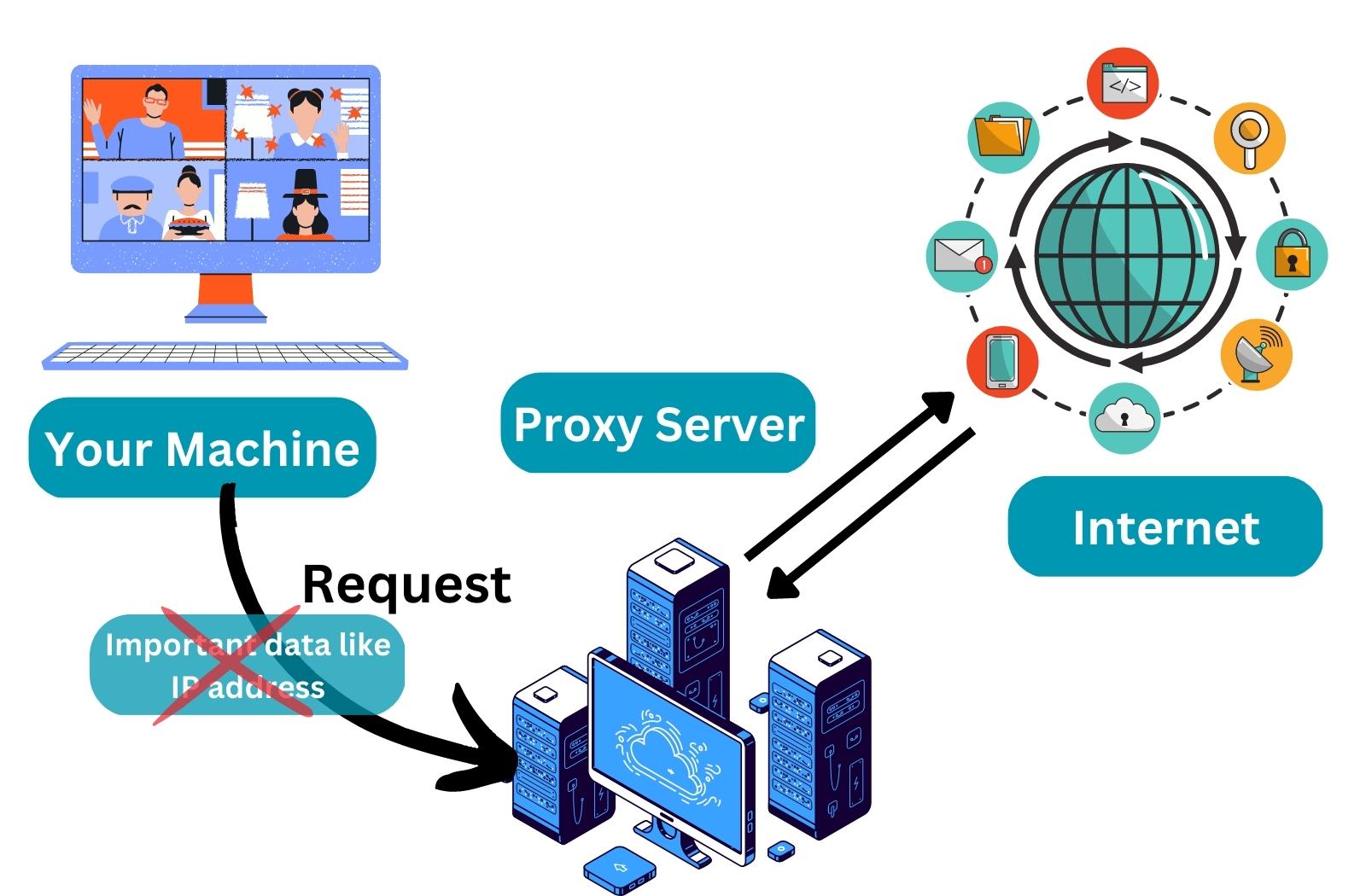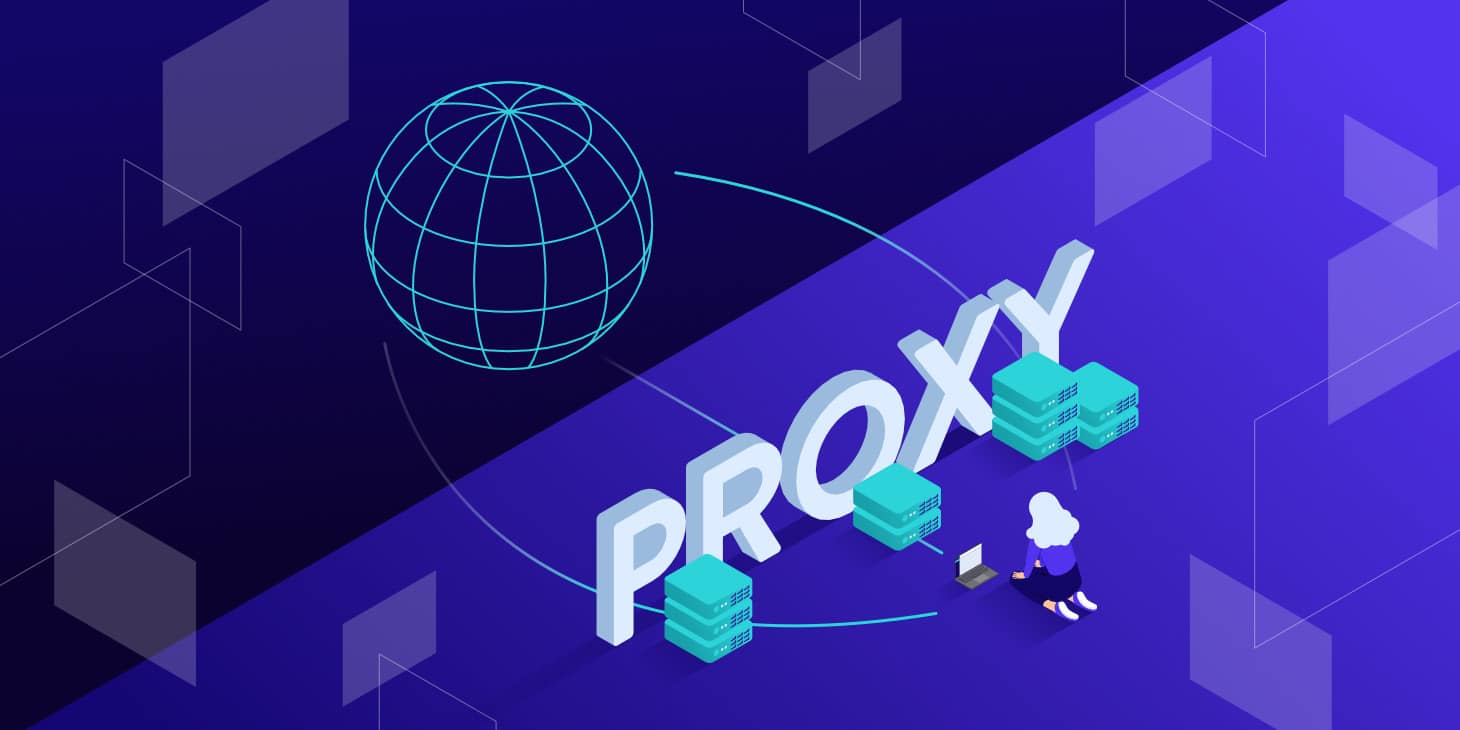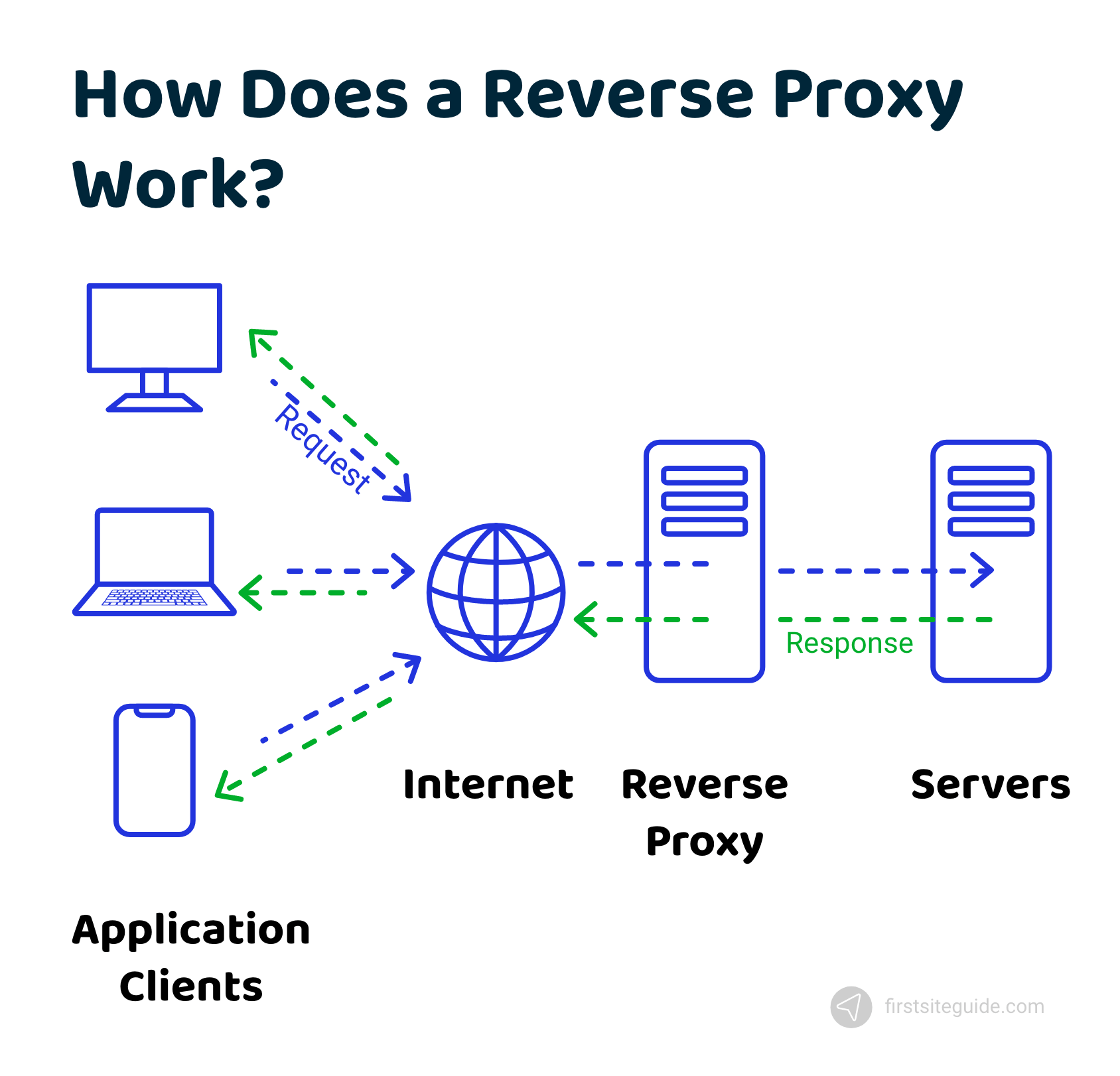Sometimes, getting to your favorite online spots feels a bit like trying to open a locked door. You might find certain websites or services just aren't available where you are, which can be a real bother, you know? This is where the idea of a "proxy Iran" often comes into the conversation, offering a way to perhaps get around those digital roadblocks and connect to the wider internet from a different virtual spot. It's really about finding a clever workaround for online access, which, as a matter of fact, many people look for these days.
A proxy server, in simple terms, acts like a go-between for your computer and the internet. Instead of going straight to a website, your request goes to the proxy first, and then the proxy sends it along. The website sees the proxy's location, not yours, which, in some respects, can make it seem like you are browsing from somewhere else entirely. This can be super handy for a variety of reasons, especially when you are looking to access content that might be restricted to certain geographical areas, like if you want to watch a video that is only available in a particular country, or so it seems.
When people talk about a "proxy Iran," they are usually referring to these digital intermediaries that appear to be located within Iran. This can let you browse the web as if you were actually there, opening up possibilities for reaching sites or services that might otherwise be out of reach. It's a method many folks use to simply get to what they want online, offering a bit of freedom in their web experience, and that, in a way, is what it is all about for many users.
- Telegram Mom Son
- 2 Kkk Members Killed In Alanta
- Is Michelle Obama A Man
- T Roy Chicago
- How Old Are The Kalogeras Sisters
Table of Contents
- What is a Proxy, Anyway?
- Finding Your Way to a Proxy Iran Connection
- Are There Different Kinds of Proxy Iran Servers?
- The Other Side of "Proxy Iran" - A Different Kind of Connection
What is a Proxy, Anyway?
A proxy server, well, it's pretty much a computer system or an application that acts as a middleman for requests from clients seeking resources from other servers. When you connect to the internet, your computer usually talks directly to the websites you visit. But with a proxy, your computer talks to the proxy server first, and then the proxy server talks to the website for you. This can be really helpful, you know, because it can hide your true location, make your browsing a little bit faster by saving copies of websites, or even help you get past some content blocks. It's kind of like sending a letter through a friend who then mails it for you, so the recipient only sees your friend's address, not yours. This setup, in a way, offers a layer of separation between your device and the vast internet out there, which can be quite useful for many folks looking for a bit more control over their online presence. So, it's not just about getting around blocks; it is also about having a bit more say in how your online activity looks to others, which is something many people care about today.
How a Proxy Iran Can Help You Connect
When we talk about a "proxy Iran," we are specifically looking at these intermediary servers that are located within Iran's borders. What this means for you, the user, is that when you connect through one of these, websites you visit will think you are browsing from Iran. This can be incredibly useful if, for example, there are websites or online services that are only available to people physically located in Iran, or perhaps content that is restricted outside of the country. By using a proxy Iran, you could potentially gain access to these specific platforms, allowing you to view content or use services that were previously out of reach. Think about popular platforms like Google, YouTube, or various social media sites; sometimes access to these can be limited depending on where you are in the world. A proxy Iran could help bridge that gap, giving you what feels like direct access. It's essentially a tool for digital reach, allowing you to extend your online presence to a different geographic spot, which, honestly, is a pretty neat trick for anyone feeling a bit held back by online borders. This kind of connection is all about widening your digital horizons, making sure you can get to the information and entertainment you want, when you want it, which, for many, is really important.
Finding Your Way to a Proxy Iran Connection
Finding a working proxy Iran server can sometimes feel like searching for a needle in a haystack, but there are places where you can look. Many websites offer lists of these servers, often updated quite regularly, which is pretty helpful. These lists let you filter your choices based on a few key things, so you can pick the one that best suits what you need. For instance, you might want to look at the "port" number, which is like a specific doorway the server uses for communication. Then there's the "anonymity level," which tells you how much information about your actual location the proxy might hide. Some proxies are more transparent, while others are really good at keeping your identity under wraps. You can also sort by "speed," because nobody likes a slow connection, right? And "uptime" is important too, showing how often the server is actually working. So, you want a server that is up and running most of the time. These options give you some control over finding a connection that feels right for your online activities, which, as a matter of fact, is a good thing to have when you are trying to browse freely.
What to Look For in a Proxy Iran List
When you are checking out a list of available proxy Iran servers, there are a few things that can help you pick a good one. You'll often see options to sort or filter the list, which makes the process much simpler. For example, you can often narrow down your choices by the "country," making sure you only see those located in Iran. You can also filter by the "protocol," which is the set of rules the proxy uses to communicate. Some common ones include HTTP, HTTPS, and SOCKS. Each has its own way of handling data, and some might be better for certain tasks, like browsing versus streaming. Websites like Pesemes.ir and Rcsm.ir are mentioned as being quick and simple to use web proxy services, letting you browse your preferred websites without cost. They say you can start using them right away to help with your online privacy. Some places even update their lists very often, like every five minutes, or daily, so you are more likely to find a server that is actually working. Getting access to these lists, particularly those with a lot of choices, might sometimes require a "pro status" or a simple registration, but it means you get to see all the available options, which, frankly, is pretty convenient for someone trying to find a reliable connection. You want to make sure the list is fresh and gives you the details you need to make a good choice.
Are There Different Kinds of Proxy Iran Servers?
Yes, there are indeed different kinds of proxy Iran servers, and they serve slightly different purposes or work in distinct ways. Beyond the general web proxies that let you browse, you might also come across specific types like OpenVPN servers. OpenVPN is a particular way of setting up a secure connection, often used for virtual private networks, or VPNs. A list of public OpenVPN servers, for instance, might be offered by a site like openproxylist.com, where each server is checked very often, perhaps every minute, before it gets added to the list. This kind of constant checking helps ensure that the servers are actually working and reliable. These lists are usually updated daily, so you are more likely to find a connection that is currently active. Another specific type mentioned is the MTProto proxy, which is often used for Telegram, a popular messaging application. This kind of proxy is described as a good way to get a steady and uninterrupted connection to Telegram, which, honestly, can be a big deal for people who rely on that app for communication. So, it is not just one type of server; there are options that cater to different needs, from general browsing to specific app usage, giving you a bit of choice in how you connect online. This variety, you know, makes it possible for people to find exactly what they are looking for when it comes to their online activities.
Specific Ways People Use a Proxy Iran
People use a proxy Iran for several specific reasons, often centered around getting around restrictions or protecting their privacy. One very common use is to simply access websites that are blocked in their current location. If a website is set up to only allow visitors from Iran, then using a proxy Iran can make it appear as if you are there, granting you entry. This is really useful for accessing local news, specific online services, or even certain streaming content that is geographically limited. Another big reason is to help keep online activity a bit more private. When you use a proxy, your actual IP address, which is like your internet address, is hidden from the websites you visit. Instead, they see the proxy's IP address. This can add a layer of anonymity to your browsing, which many people appreciate, especially when they are concerned about who might be watching their online movements. For instance, some users might look for updated lists of free proxy servers from Iran that even come with usernames and passwords, suggesting a slightly more controlled or perhaps secure type of public access. The goal is often to simply browse securely and without interruptions, making sure their online experience is as smooth and private as possible. This pursuit of a freer and more private online presence is, in a way, a key driver for many who seek out these kinds of connections, which is pretty understandable given today's digital landscape.
The Other Side of "Proxy Iran" - A Different Kind of Connection
It's important to know that the phrase "proxy Iran" can mean something quite different in another context, moving away from internet servers and into geopolitics. This other meaning refers to the network of groups and organizations that Iran supports or influences in other countries, especially across the Middle East. These are not digital connections, but rather political and military alliances that extend Iran's reach and influence beyond its own borders. Since the 1979 revolution, Iran has, you know, built up quite a collection of these allied groups. These groups often act as extensions of Iran's foreign policy or security interests, representing a form of indirect influence. By 2022, for example, Tehran had connections with more than a dozen significant militias, some of which even had their own political groups. These allied organizations, in a way, have played a part in challenging local governments and even neighboring countries. So, when you hear "proxy Iran" in news reports about international relations, it is usually talking about these real-world networks of support and influence, which is a very different kind of "proxy" than the internet servers we discussed earlier. This aspect of "proxy Iran" is about strategic relationships and regional power dynamics, which, honestly, is a complex topic that shapes a lot of what happens in that part of the world.
How This Broader Proxy Iran Network Works
This broader network of "proxy Iran" groups operates by having various organizations, often armed militias, receive support, training, or even direction from Iran. Key players in this system include Iran's Revolutionary Guards and the elite Qods Force, which is a special unit within the Guards. These forces are understood to be instrumental in building and maintaining these relationships. The support can come in many forms, like providing weapons, money, or strategic advice. These groups then, in a way, carry out actions that align with Iran's goals in the region. For example, they might be involved in conflicts, or they might put pressure on local governments. This method allows Iran to exert influence without directly deploying its own regular military forces into every situation, which can be a strategic advantage. It is a way of extending power through allies rather than direct military presence. This approach has allowed Iran to build connections and, arguably, a presence in various countries, which has had a considerable impact on the political and security situations in those areas. So, it is about a kind of indirect involvement, where others act on behalf of or with the backing of Iran, which, for many, is a significant part of understanding regional dynamics.
What Does This Mean for the Region?
The existence and operation of this broader "proxy Iran" network has, you know, some really significant implications for the Middle East. It can contribute to instability in various countries, as these allied militias might challenge established authorities or even clash with other groups. This can lead to ongoing conflicts or create new tensions. The presence of these groups also means that Iran has a say, in a way, in the internal affairs of other nations, which can complicate efforts to achieve peace or stability in the region. It also affects the balance of power among different countries in the Middle East, as Iran's influence grows through these connections. For example, the activities of these groups can impact oil prices, trade routes, and even international relations beyond the immediate region. It is a complex web of relationships that has developed over many years, shaping how countries interact and how conflicts play out. Understanding this aspect of "proxy Iran" is really important for anyone trying to make sense of the news coming out of the Middle East, as it represents a major part of the political and security landscape there. So, it is not just about local issues; it is about how these connections ripple across the entire region, affecting many different aspects of life and politics, which, honestly, is something worth paying attention to.
This discussion has covered two distinct meanings of "proxy Iran": the technical internet servers that help with online access and privacy, and the geopolitical networks of influence Iran has built in the Middle East. We looked at how internet proxies work, what to consider when looking for them, and some specific examples like Pesemes.ir and MTProto for Telegram. We also explored the very different concept of Iran's allied groups, like those supported by the Revolutionary Guards, and how they impact regional dynamics. Both uses of the word "proxy" describe a form of intermediary, but one is about digital connections for individual users, while the other is about strategic alliances that shape international relations.
Related Resources:
Detail Author:
- Name : Dr. Lora Leuschke
- Username : shanelle.kozey
- Email : charlene.dooley@gmail.com
- Birthdate : 1976-05-30
- Address : 9994 Johnathon Fort New Maeveport, FL 23963
- Phone : (817) 203-3219
- Company : Maggio-Jones
- Job : Letterpress Setters Operator
- Bio : Unde accusamus molestias facere optio. Earum inventore et accusantium molestiae et vel aliquam. Vero et quis est ut eum.
Socials
tiktok:
- url : https://tiktok.com/@kelsie_blanda
- username : kelsie_blanda
- bio : Corporis repudiandae aliquam iure consequatur explicabo.
- followers : 4385
- following : 326
linkedin:
- url : https://linkedin.com/in/kblanda
- username : kblanda
- bio : Vel incidunt aut suscipit.
- followers : 3416
- following : 783
instagram:
- url : https://instagram.com/kelsieblanda
- username : kelsieblanda
- bio : Deserunt laudantium similique porro sit vitae quia. Culpa qui odio ea esse ea aspernatur et.
- followers : 2581
- following : 2586



